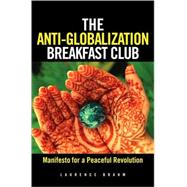
A lawyer and economist by profession, during the 1990s he served as an advisor to the central banks of Vietnam, Laos and Cambodia, guiding them on financial reforms in their transition from socialism, and to Mongolia on enterprise restructuring. Brahm advised China ’s leadership on state-owned enterprise reforms throughout the 1990s. During this period he advocated practical solutions to development as alternatives to those espoused by the Washington Consensus and stood up against “shock therapy.”
Since 2002 Brahm has worked in the Himalayan plateau, evolving new models of cultural and ecotourism development through heritage restoration boutique inns, pioneering micro-equity projects for marginalized women and the handicapped, and organizing rural medical and educational outreach programs. Brahm founded the NGO Shambhala. He has also served as interlocutor and bridge between Beijing and Dalai Lama in their negotiations, and worked with Nepal’s Maoists during their transition from guerilla fighters to a legitimate political party in a democratic system.
Author of more than 20 books on the Asian region, Brahm has covered a wide spectrum of topics in his writings. These include economic development, financial reform and monetary policy in China and Southeast Asia, as well as new-era travel in Tibet.
Brahm is a columnist and commentator for Hong Kong South China Morning Post and for
ReviewAsia magazine. He divides his time between Lhasa and Beijing.
| Introduction | |
| Beijing Years | |
| Searching for Beijing Consensus | |
| Confessions of an Ex-Corporate Lawyer | |
| Fighting Washington Consensus in Laos | |
| Coping with Currency Crisis in Vietnam | |
| Managing the Market in Beijing | |
| Nomads Go Corporate in Mongolia | |
| Calling for Overthrow of the ADB | |
| Back with Premier Zhu in Beijing | |
| Emasculating the World Economic Forum in Beijing | |
| The Himalayan Years | |
| Finding a New Himalayan Consensus | |
| Searching for Shangri-la | |
| Seeking New Consensus | |
| Searching for Sustainable Tourism | |
| Beginning by Protecting Heritage Architecture | |
| Moving to Lhasa | |
| Establishing a Sustainable NGO | |
| The Road Ahead | |
| Towards Himalayan Consensus | |
| Searching for Shambhala | |
| Finding the Oracle of the Panchen Lamas | |
| In the Age of Kali | |
| Searching for the Panchen Lama | |
| Coping with the Age of Kali | |
| Searching for Shambhala | |
| Tibet's New Voice | |
| Advocating Himalayan Consensus From Top of the World | |
| Which Way? | |
| The Lhasa Way | |
| A New Formula For Hu? | |
| An Unharmonious Society | |
| Cause and Effect Syndrom | |
| New Values - New Order | |
| Protectionist Walls | |
| What about Globalization | |
| Toward a More Compassionate Post-Breton Woods System | |
| The Shangri-La Way | |
| From Tibetan Grass Roots Sprout New Economic Alternatives | |
| Coping with Income Disparity | |
| Solving New Problems Created | |
| Economic or C02 Bubble? | |
| When Ideology Falls Short | |
| Searching for Shangri-la | |
| The Shangri-la Alternative | |
| Silk Road Consensus | |
| Finding Himalayan Consensus on the Caravan Serai | |
| Toward Silk Road Consensus | |
| Time for New Consensus | |
| Re-empowering the Madras | |
| Turning the Himalayan Barrier into a Bridge | |
| New Himalayan Paradigm | |
| Missing Link | |
| Toward a Kashmir Solution | |
| The Unsolved Problem | |
| Afghanistan | |
| Marginalizing Poverty and Terrorism | |
| Nepal's "Prachanda Path" | |
| Buddhism's Middle Way Becomes Mandate for Nepal's Maoists | |
| Finding a Middle Path | |
| Populist People Power | |
| Anatomy of a Maoist | |
| US Administration Opposition and Interference | |
| Deterring Democracy | |
| Deferring from the IMF-World Bank Line | |
| Towards New Consensus | |
| An Idea Whose Time Has Come | |
| The Rise of Himalayan Consensus | |
| Re-engineering Shambhala Vision | |
| Setting New Paradigms | |
| Village Grassroots Banking | |
| Calling for the Right Kind of Globalization | |
| The Sri Lankan Alternative | |
| Seeking Justice in the Forest, Village or Capital Market Place | |
| Buddhist Diplomacy Begins | |
| Toward Building New Asian Consensus | |
| A Sri Lankan Alternative to Washington Consensus | |
| Table of Contents provided by Publisher. All Rights Reserved. |
The New copy of this book will include any supplemental materials advertised. Please check the title of the book to determine if it should include any access cards, study guides, lab manuals, CDs, etc.
The Used, Rental and eBook copies of this book are not guaranteed to include any supplemental materials. Typically, only the book itself is included. This is true even if the title states it includes any access cards, study guides, lab manuals, CDs, etc.